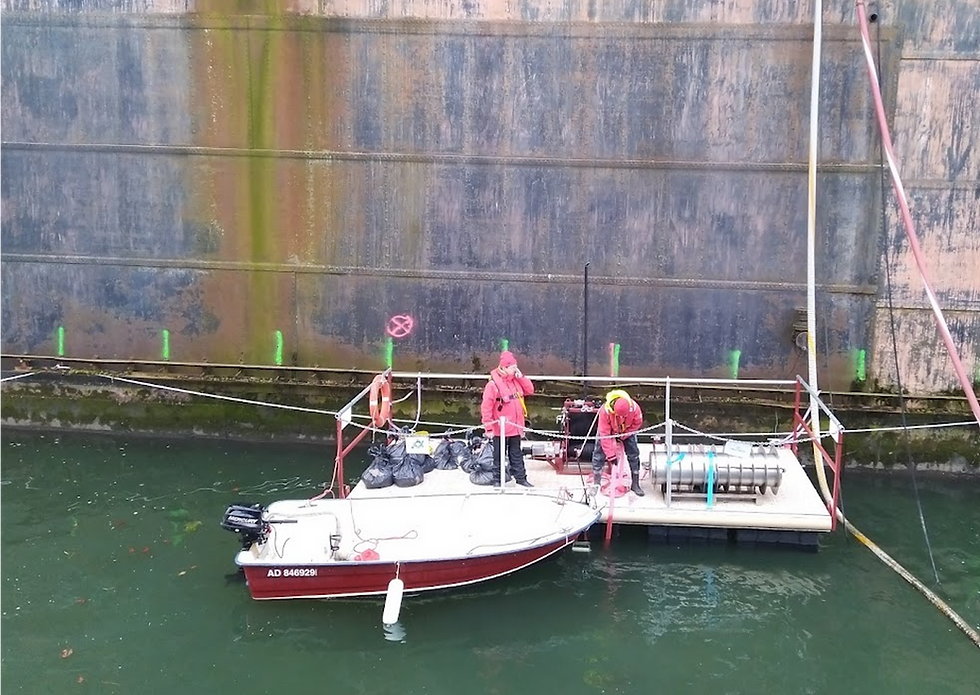Case Study: Pre-Dredging Decontamination of Water & Sediments in Rouen, France, Using Bio-Based Methods
- Benjamin Constant
- 8 juil. 2024
- 1 min de lecture
Dernière mise à jour : 15 juil. 2025

Background and Context
HAROPA Port (established in 2021 by merging the ports of Le Havre, Rouen, and Paris) has launched a major expansion in Rouen as part of its strategy to strengthen the Seine corridor. The project includes developing approximately 7.6 ha of strategically located dockfront land on the Élile Peninsula to host new logistics and industrial operations—leveraging river, rail, and road connections.
However, this section of the Seine corridor was particularly contaminated. The 30k tons of sediments that needed to be dredged in order to clear the way for construction would need to be decontaminated before work could begin.
This was a difficult situation, both economically and technically, so the project managers turned to Neo-Eco for an inexpensive and effective way to decontaminate the riverway using bio-based methods.

What We Did
We took baseline measurements of the different types of organic and inorganic contaminants suspended in the river's water and mixed in with the local sediment deposits
We developed cocktail mixes of food-grade bacteria and fungi that would eat away at the contaminants over the coming weeks and months, then deposited them in strategic locations
We periodically took new measurements to track the reduction in contamination over time
Outcome
Over time, we saw a significant reduction in key contaminants like HCT, COT, HAP, and PCBs, thereby clearing the way for the project to begin.








